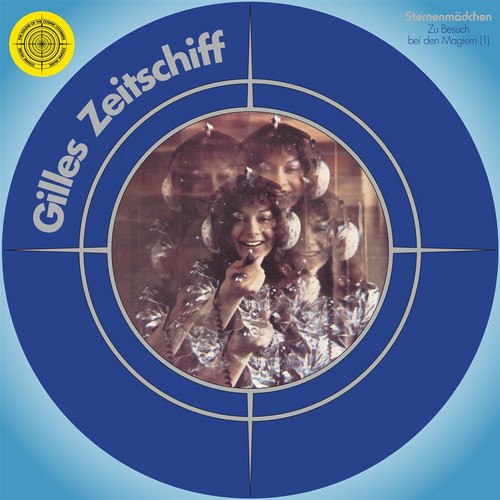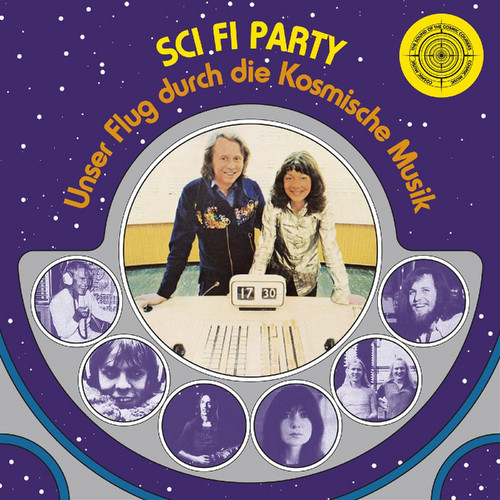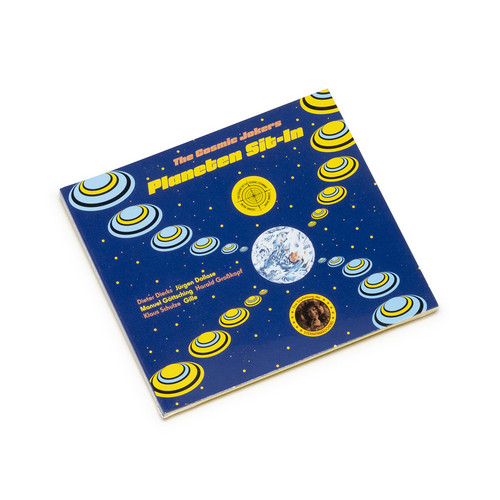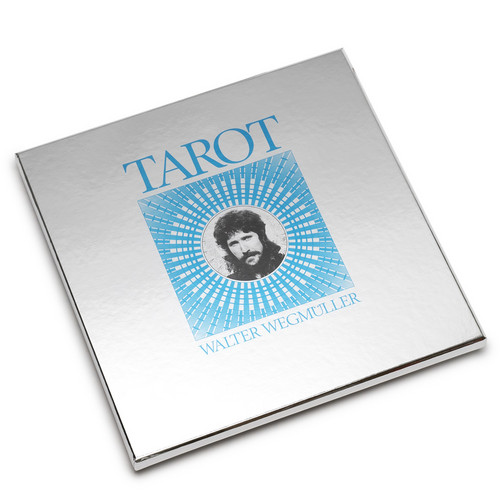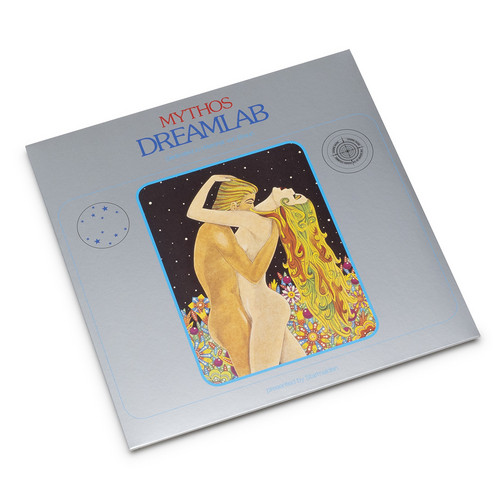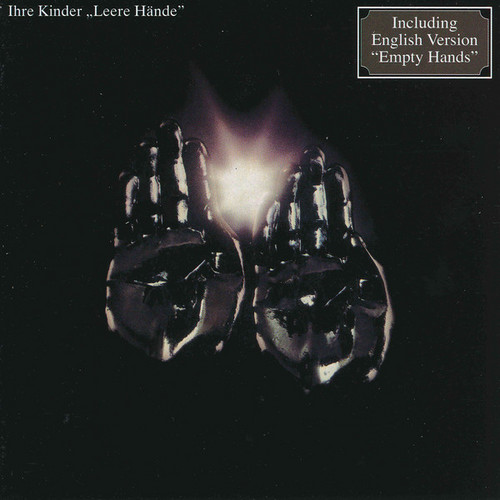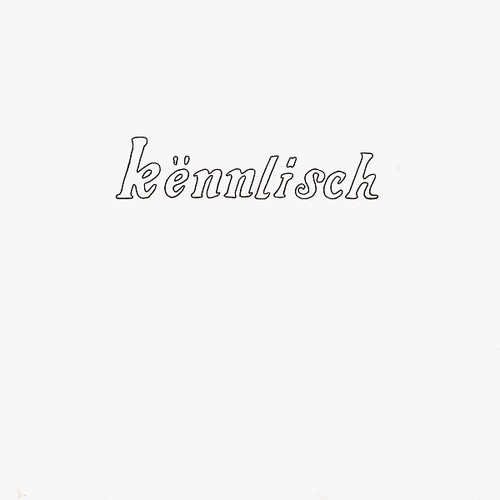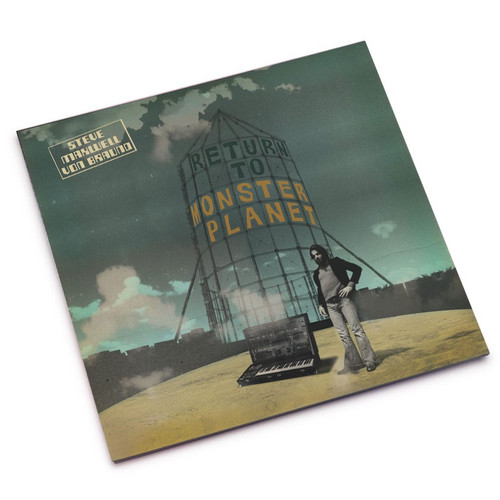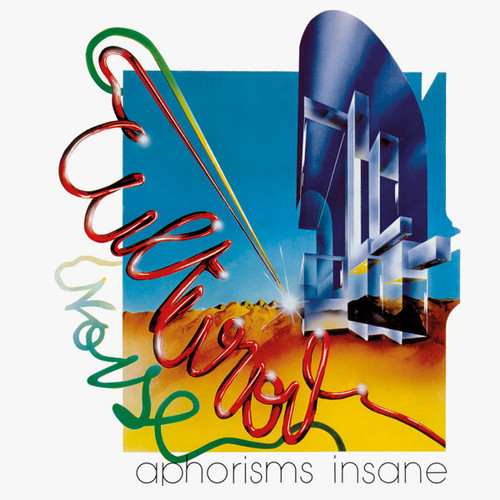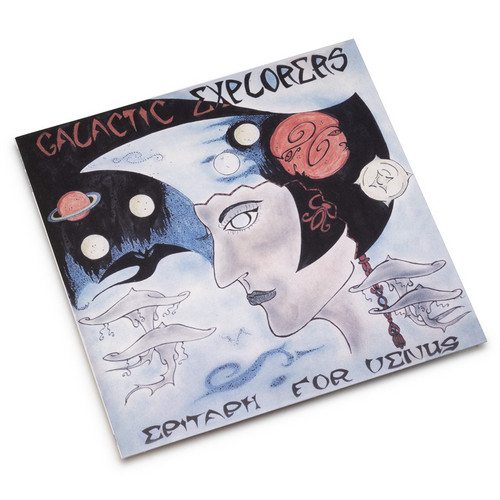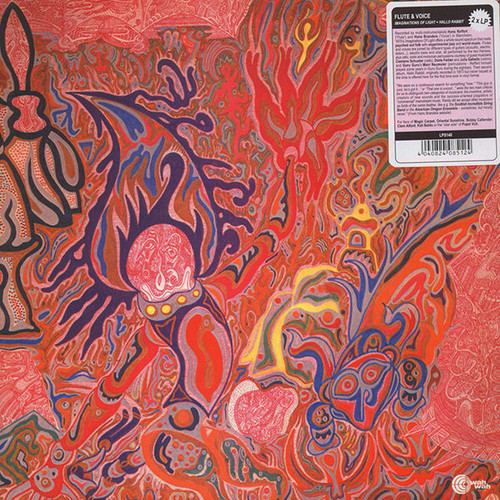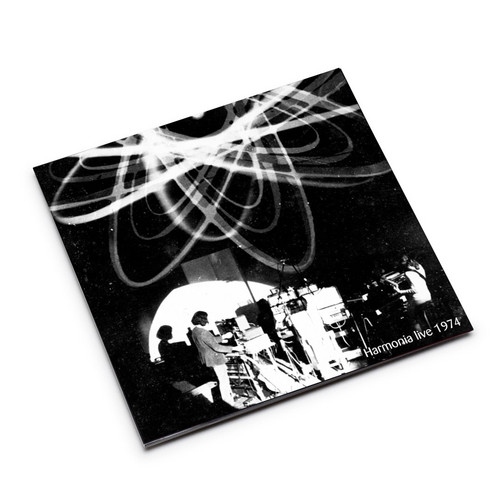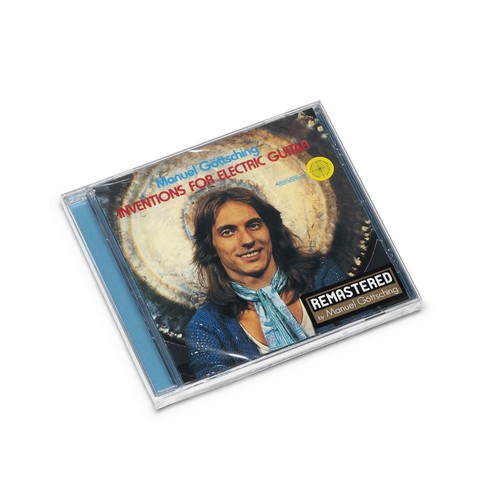Psych /
Gilles Zeitschiff
180g, black vinyl. Carefully transferred and remastered from the original analogue master tapes by HaGü Schmitz at Dierks Studios in Pulheim-Stommeln in 2022. Re-release of the original 1974 album by Gille Lettmann aka Sternenmädchen / Star Maiden. Live in the Quadro Studio: Gille and Klaus Schulze. Music inserts from the LPs "Seven Up" (Ash Ra Temple & Timothy Leary), "Lord Krishna von Goloka" (Sergius Golowin), "Tarot" (Walter Wegmüller). Statements by Sergius Golowin, Timothy Leary, Brian Bar…
Sci Fi Party
LP version. 180g, black vinyl. Carefully transferred and remastered from the original analogue master tapes. The compilations Planeten Sit-In and Sci Fi Party, both originally released in 1974, are a contemporary document of the legendary jam sessions of the Cosmic Jokers. Under a conceptual mantle, the recordings were brought to a young audience. Among the musicians the elite of the krautrockers of that time, like Manuel Göttsching, Klaus Schulze, Jürgen Dollase, and Harald Grosskopf. Plus, Die…
Planeten Sit-In
"Whereas the two earlier Cosmic Jokers albums, the eponymous first effort and Galactic Supermarket, offered long, intense, free-flowing jams, Planeten Sit-In contains much shorter snippets of music patched together with cross-fades and weird electronic effects. The effects -- burbling electro noises, high-pitched twees, and other sci-fi sounds -- are even more prevalent, erupting out to drown out the drum, guitar, and bass rhythms, as if to make full use of the quadraphonic sound of the original…
Tarot
* 180g, double LP on Black Vinyl. Includes all assets of the original boxset: with cards of the participating artists, explanatory text and the tarot cards, which are treated musically in the album* Remastered by Dierks/Flüchter. Walter Wegmüller (1937 - 2020) was a Swiss-Jenish artist who grew up in difficult circumstances in Bern. After training in Basel, Bern, Paris and London, he began his artistic career. In addition to painting and sculptural works, Walter Wegmüller occupied himself with t…
Dreamlab
Temporary reduced price. LP version. The second album from Berlin-based electronic group Mythos, originally released in 1975, represents a crucial bridge between the cosmic folk of their debut and the full-blown Berlin school sound that would dominate the second half of the decade. Mastermind Stephan Kaske guided the band into deeper electronic territories here, crafting sound cascades and sequencer patterns that align them with the visionary work of Tangerine Dream and Ash Ra Tempel on the same…
Empty Hands
Ihre Kinder, formed in 1968, and were the pioneers among the politically and socially engaged groups in Germany. Their second album 'Leere Hände' was originally released on the legendary Kuckuck label in 1970. The English version, called 'Empty Hands', has never been available on vinyl. There was a small number of white label copies pressed by Deutsche Grammophon in 1970/'71 to solicit releases by Polygram companies around the world, but as there was no interest, the label dropped the idea. So, …
Kennlisch
** Edition of 500. Including a 4-page colour booklet with photos and text provided by the Macherey brothers themselves. ** Kënnlisch, one of the rarest haunting psychedelic acid folk LPs from France, was the work of brothers Philippe and Jean-François Macherey. Originally released in 1976 on the mega collectable label Le Kiosque d'Orphée, it contains some of the most beautiful sounds to come out of the 1970s alternative music scene. An instrumental album, it opens with a burst of sunshine vibes…
Return To Monster Planet
A sequel to the cult 1975 Australian space rock album Monster Planet. In 2013 The Roundtable curated a dedicated program redocumenting the music of Australia’s legendary space rock band Cybotron. A new generation of electronic music enthusiasts and krautrock fans alike had been introduced or had perhaps been reconnected to the unlikely yet incredible sounds of Australia’s unique brand of ‘kosmische musik’. This archival series included Steve Maxwell Von Braund’s groundbreaking solo album Monster…
Aphorisms Insane
The only album by Austrian trio Cultural Noise is a an electronic marvel. Band members were Gerhard Lisy, Walter Heinisch and Karl Kronfeld, and instruments used included an ARP Sequencer, an ARP 2600, a VCS 3, an EMS Digital Sequencer, a Mellotron M400, a Micro Moog, a Roland Studiosystem 700, a Roland Analogue Sequenzer and an electric guitar. With these weapons and a strong influence from the Berlin school Cultural Noise created a rich electronic tapestry which expanded through the two piece…
Epitaph For Venus
From the moment it emerged during the mid 90’s, mystery has swirled around Galactic Explorers’ sole LP - Epitaph for Venus. Released by the Psi-Fi imprint as a long lost Krautrock gem from the mythical Pyramid label’s archives - said to be have been recorded by Toby Robinson in Cologne circa 1972/73, it has been loved by many, while others have cried hoax. Some ventured further, implicating none other than Genesis P. Orridge as the creator. The truth isn’t publicly known, but the foggy origins p…
Imaginations of Light + Hallo Rabbit
This fine double LP release combines two full-length albums from the German acid/kraut-folk duo Flute & Voice, which was formed by Mannheim-based multi-instrumentalists Hans Reffert ('Flute') and Hans Brandeis ('Voice'). The debut-LP 'Imaginations Of Light', originally released in 1970 by the legendary Pilz label, features wonderful trippy and progressive folk music with ethnic and even jazzy elements. This LP should appeal to fans of fellow Germans s.a. Witthueser & Westrup and Bröselmaschine, …
Live 1974
The problem with Harmonia is that words simply don't do the band justice. A super-group made up of Hans-Joachim Roedelius and Dieter Moebius (of Cluster) and Michael Rother (of Neu!) they re-defined not only the Krautrock genre but also electronic music in general with a mere two full-length albums ('Musik von Harmonia' and 'Deluxe') so saying that they are an important act, especially on the pages of this particular website just doesn't do them justice. With a flawless blend of electronic and e…
Inventions For Electric Guitar
**CD version** With his first solo album, which was originally released in 1974, Manuel Gottsching (Ash Ra Tempel) laid the foundation for many other upcoming works. In fact, the guitar was invented here, for his play on the three epic tracks are years ahead of its time: Circular, flat, layered loops and improvisations create a compelling, hypnotic atmosphere and make this album in retrospect a landmark of new guitar culture. The album was completely remastered by Manuel Gottsching himself and i…
